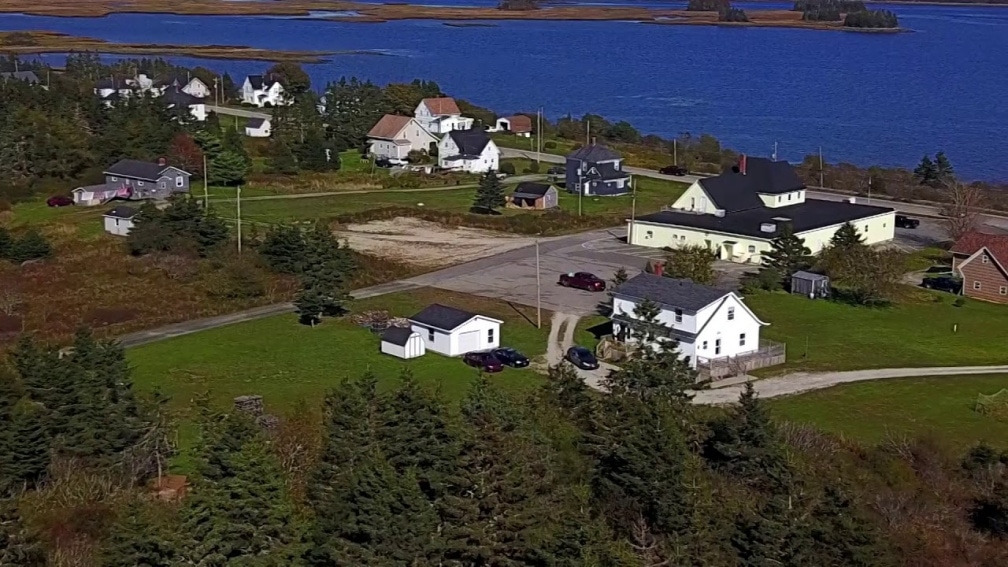
(For today’s article I ask that you insert your choice for the community’s name as the rural municipality being referenced as We.)
I believe that much of rural Nova Scotia is within a lifestyle and employment crisis: populations are declining, traditional job opportunities are shrinking, municipal tax bases are dwindling and attracting residents is becoming both more difficult and extremely competitive. The blunt reality is that We needs more residents of all ages who possess a variation of backgrounds and skills. To counterbalance all this, communities need to revamp their mindsets for surviving, attracting and prospering.
Supportive population numbers matter therefore what exists within 30 miles/50 kilometres from the centre of We impacts all within that radius. Therein lies one of the realities of modern-day living — with a reasonable-journey distance being a no-brainer — people will travel to enjoy restaurants, cultural events, purchase services and shop.
See also: Peter Puxley: If not mining, then what? Towards a sustainable and prosperous rural Nova Scotia
My wife and I live, shop, use services and pay municipal taxes in our We (Guysborough) but our travels frequently take us to Antigonish, Port Hawkesbury and further afield in order to acquire our additional wants. Those travel expectations exemplify the extreme importance of satisfactory rural roads to enable all of our mobility needs.
We cannot do all that needs to be done as an individual entity therefore it needs to carefully and openly work with other communities to examine how to combine energies and resources to attract residents without replications of those limited requirements. I consider We to be the hub of a region and not the single identity of a self-centred community thus all within that hub’s radius must cooperate as much as possible.
A beginning step to attract new residents is to prepare for their first impressions, both those conditions that are obvious and the many which are subtle but apparent to the discerning eye; things such as appearances of properties, care of communities, evidence of pollution, examples of progressive thinking and welcoming opportunities.
Another plank to attract is an importance placed on why people live in We.
Emphasis too must be focused upon what is offered that provides for its residents’ well-being and desired living standards. In addition, discussions and actions need to be blunt in order to deal with that which a region does not offer that would appeal to its residents and correct whatever which would discourage their residency (such as a lack of efficient high-speed internet services for all). We needs an honest focus on what it offers that others don’t, can’t or won’t.
Residents need to enthusiastically demonstrate pride to live within their area, to actively show why they are happy to call We their home base. Communities can’t be everything to everybody but they can definitely coordinate their energies to do what is good for their overall parts. We needs to face the reality that it must think progressively and look forward with its actions rather than to succumb to a few persons’ antiquated status quo mentalities as it attempts to get things done. Because tribalism is counter-productive, the unproductive myth that a community (municipality) can survive on its own needs to be erased from collective mindsets.
Over the 13 years since moving to our very own We (Guysborough), Betty and I have heard much about this region’s numerous dreams of attracting young families and acquiring new employment opportunities. Both are admirable platitudes but what all regions need foremost is a mixture of supportive residents who provide revenue for its businesses, contribute to its municipal tax base, re-enforce the survival of its hospital’s services, support existing amenities and possibly enhance its school’s existence.
We must be extremely cautious with its endorsement of business proposals that allude to a mystical pot of gold and not be seduced by economic rhetoric. Proven necessary by history, stakeholders’ collective questions must be addressed by corporations and others who promise much, take most, employ some locals and/or treat regions as if its natural qualities exist for exploitation. Current and future generations should not be left to their own devices to deal with the long-term consequences of economic and environmental abuses.
Potential community members, and hopefully contributors, must not be subjected to age-discrimination. Many of those within my age group are retirees, many of them moved into our region. My fellow retired residents check off all the provisions mentioned previously — except currently providing children for the school — and all actively support We, its services and many of its organizations. My cohorts and “younger” residents all pay municipal taxes and provide revenue for businesses which in turn deliver jobs thus we support We’s employment chain thereby enhancing business opportunities to develop and to be sustained.
We needs to address what people are seeking for their community’s region, what new residents expect to find available upon moving there and what will be the quality-of-life opportunities for all the members of their now-relocated family.
Sadly, the reverse also needs to be recognized and — where possible — sincere attempts implemented to rectify why citizens are leaving to live elsewhere.
A very successful business person once told me that “it was easier to lose a customer than to gain one”. That same truism is also applicable to We in that it needs to provide for its occupants and do all in its power to attract and/or to keep them because with a residents-first philosophy, jobs will follow.
Ray Bates, a former school principal and NS Community College faculty member (Ret’d), is a resident of Guysborough. Ray has been contributing his opinions to newspapers since 1998. raybates@eastlink.ca
With a special thanks to our generous donors who make publication of the Nova Scotia Advocate possible.
Subscribe to the Nova Scotia Advocate weekly digest and never miss an article again. It’s free!



